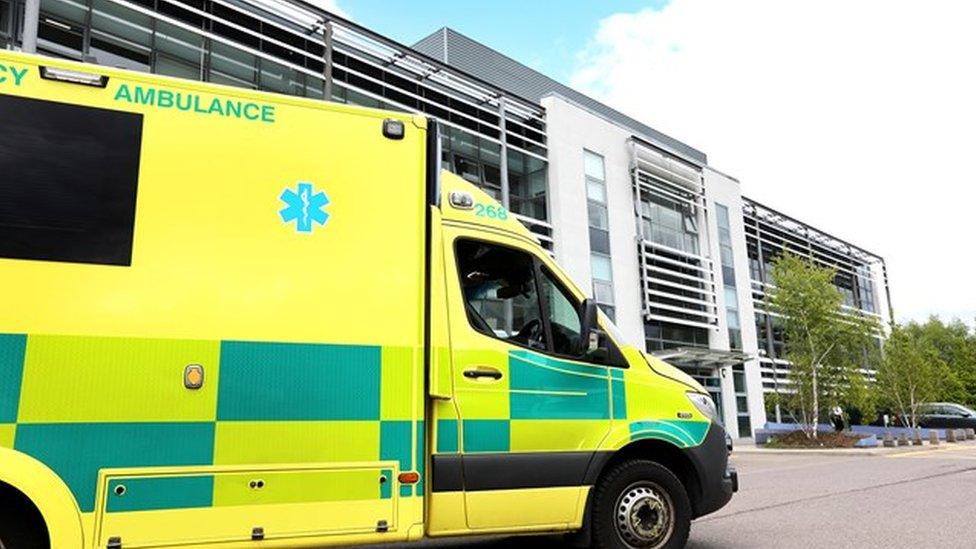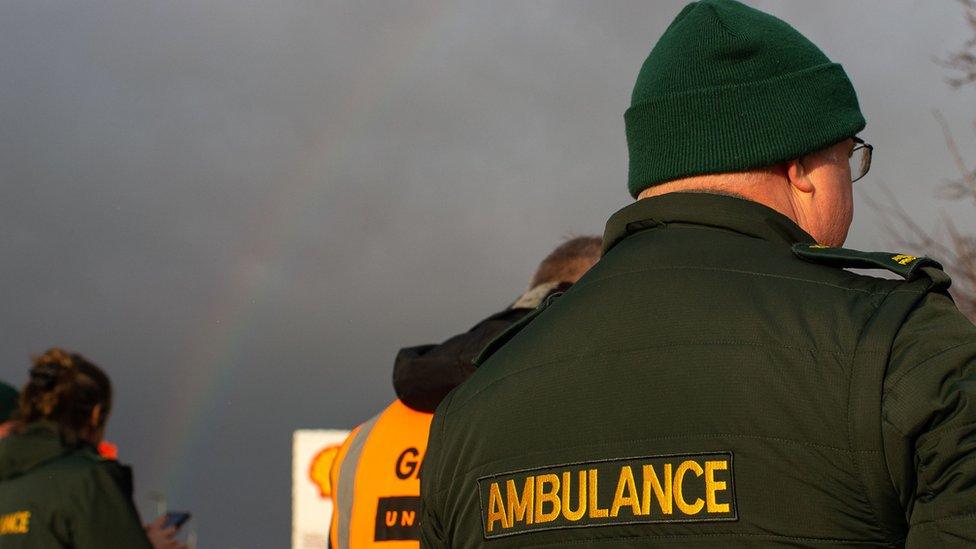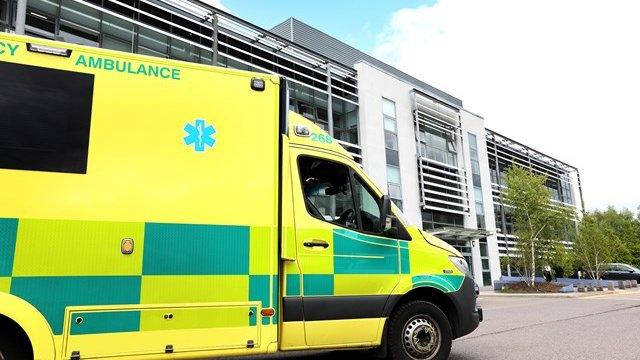North East Ambulance emergency care 'requires improvement' - CQC
- Published

NEAS bosses said they had taken "swift action"
An ambulance trust criticised in a damning report still needs to make improvements to some of its services, the Care Quality Commission (CQC) said.
The watchdog identified concerns during a fresh inspection of the North East Ambulance Service's (NEAS) emergency and urgent care services.
However, the CQC said it had made "some improvement" and moved those from "inadequate" to "requires improvement".
NEAS said it had taken "swift action" to ensure it had "made good progress".
It comes just months after inspectors found ambulance crews were frequently responding to emergencies without access to life-saving drugs.
Meanwhile in March, concerns over a "toxic culture" within the trust were raised, with some staff claiming they were fearful of reporting incidents.
'Poor record keeping'
The new inspection in April and May this year, which only looked at NEAS's emergency and urgent care and not the trust as a whole, still found issues with medicines, with stock levels not being accurately recorded and some not being stored correctly.
The CQC said that although the process for controlled drugs showed signs of improvement, an audit revealed "poor record keeping" and also found patients were still being put at risk.
When it looked at how incidents were reported, inspectors found there were still some issues with how staff felt, and whether they were confident any action would be taken.
It said that although there was "evidence that incidents were being addressed" faster, just over a third of staff surveyed (36%) felt that when errors were reported, the trust took action.
Inspectors also looked at the service's "duty of candour", which ensures services are open and transparent with patients on problems, and said there was further work needed.
The NHS is currently holding a full independent review after a whistle-blower raised concerns NEAS had covered up mistakes by paramedics in the deaths of patients.

The CQC said it was 'mindful that ambulance services are operating under increased pressure'
When reviewing staff feedback, the CQC found that, although the number of staff reporting bullying and harassment remained low, more than half did not feel safe reporting their concerns without fear as a result.
It said the overall result "remained negative", but that additional time was needed for the trust to implement changes to improve the culture.
Sarah Dronsfield, the CQC's deputy director of operations in the north, said the watchdog was "pleased to find some improvements" to the service but would monitor the trust "closely".
"We are mindful that ambulance services are operating under increased pressure and we were pleased to see caring staff, and the trust still working hard to make the necessary improvements during this time," she said.
"At this inspection, we found there had been multiple changes at board level and through our engagement, we know they've taken our concerns seriously, and made considerable improvements.
"However, they need more time to fully understand all the priorities and issues the trust faces, so they can make further improvements to ensure people are receiving a high standard of care."
Ms Dronsfield said the trust had started to develop "better systems" to act on feedback, but it was important the leadership team tackled fears of repercussions "as a priority" when staff spoke up.
She said previous issues with cleanliness at ambulance stations had been resolved as during the inspection all 14 "were all clean and well maintained".
'Still more to do'
NEAS chief executive Helen Ray said the upgraded rating was "testament to the hard work and effort" made by staff in "different teams across the service on our journey of improvement".
"The swift action we have taken since the first inspection has ensured we have made good progress, but given the short time since the last CQC report in February, we recognise there is still more to do to embed the changes we've introduced," she said.
"The ambulance service and the NHS as a whole has faced unprecedented pressures, the likes of which we've never experienced, but we have acted quickly to address the CQC's concerns and we are now beginning to see the results of this hard work."

Follow BBC North East & Cumbria on Twitter, external, Facebook, external and Instagram, external. Send your story ideas to northeastandcumbria@bbc.co.uk, external.
- Published1 February 2023

- Published12 March 2023

- Published14 June 2022
